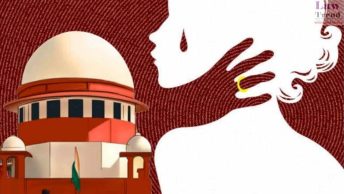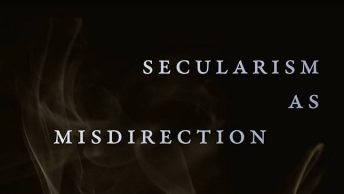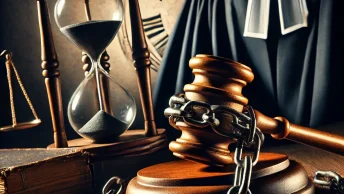Does anyone know of the status of this case filed by the All India Christian Federation challenging the unconstitutionality of the Constitution Order 1950 which excludes Christian and Muslim dalits from the benefits of affirmative action measures available to scheduled castes? I was wondering whether an old colonial law, the Caste Disabilities Removal Act 1850, may be relevant to this litigation. This is what the operative section of this Act says:
So much of any law or usage now in force within India as inflicts on any person forfeiture of rights or property, or may be held in any way to impair or affect any right of inheritance, by reason of his or her renouncing, or having been excluded from the communion of, any religion, or being deprived of caste, shall cease to be enforced as law in any Court.
This legislation raises a number of interesting issues. Firstly, much will turn on the meaning of the phrase ‘now in force’. I would think that, despite this unhelpful terminology, the legislation should apply to administrative orders and secondary legislation made after 1850. Primary legislation, on the other hand, will clearly override a preceding legislation (doctrine of implied overruling). Second, and it follows from the first point, a court will need to decide whether the ‘public notification’ issued by the President under Article 341 is primary or secondary legislation. I doubt very much it will have the authority to impliedly overrule pre-existing primary legislation, but I have not researched this point. Does anyone know of any case on this point? Thirdly, if the 1850 Act continues to apply to secondary legislation passed after 1850, and if the Presidential Order of 1950 is indeed one such legislation, the latter must conform to the 1850 Act. Fourthly, it seems obvious to me that dalit Christians and dalit Muslims are deprived of the benefits of reservations ‘by reason of his or her renouncing, or having been excluded from the communion of, any religion, or being deprived of caste’, and that such deprivation amounts to ‘forfeiture of rights’. As such, Courts cannot enforce their exclusion from these benefits.
I recognise that this is, at best, a plausible (rather than the only possible) interpretation. I am just thinking aloud, from a position of ignorance of jurisprudence surrounding the 1850 Act or the 1950 Order. Some of you will know more than I do, and I look forward to being enlightened.
As an aside, I find the 1850 Act fascinating. It may well be the first legislation protecting freedom of religion in colonial India. Also, it uses gender-neutral language in 1850! More interestingly, it does not invalidate laws that fall foul with it – instead, it demands that the courts refuse to ‘enforce’ them (presumably while they continue to be valid laws). The distinction between invalidation and non-enforcement has been salient in the second Factortame case, where the House of Lords decided that British law that is inconsistent with EU law will not be enforced by courts, even though it will continue to be valid law. Finally, this Act may also be relevant to the various decisions on excommunication that have been decided by our courts. I wonder whether it was cited by the parties in any of these cases.







Hi
As far as I understand, caste is a secular and religion neutral concept. This point is missed by many who refuse affirmative action for backward Muslim and Christian groups. But The Ranganath Misra Committee Report seems to have recognized this- it has recommended the deletion of paragraph 3 of the 1950 Constitutional Order by appropriate action so that SC status can be completely delinked from religion. It must be noted here that the ST category has always remained religion neutral and many Muslim and Christian tribes enjoy benefits of reservations under it (although both Sachar and Misra tend to suggest underrepresentation here also).
Misra notes that three petitions on this question are pending before the Supreme Court and seven in different High Courts. I have not been able to look up on the status of any of them. It also mentions the only reported judgment on the 1950 Order:
“The only available judgment on this issue, namely, the constitutionality of paragraph No.3 of the Constitution (Scheduled Caste) Order, 1950 in Soosai vs. UOI 1985 (Supp) S.C.C. 590. In the Judgment, the Supreme Court had accepted that the caste continued even after conversion. It had, however, sought for more material to show that the handicaps of persons of Scheduled Castes had remained the same even after conversion to Christianity. In the said case, the Court was not satisfied with the material placed before it.”
I know that the Supreme Court has not invoked its much used judicial review power here, but then is affirmative action a right under the Constitution which is being denied only on the basis of religion? Is it a matter for the judiciary to be engaging with? Theoretically, the way in which formal law operates, the deletion of para 3 would mean these benefits being taken away even from other SCs which are deemed to be deserving enough under the present scheme. This may well be beyond the realm of possibility for political or other reasons, but hypothetically, what if Para 3 is deleted, and then there is no subsequent presidential order rectifying the error including SC equivalent groups in all religions?
However, I believe the problematic portion in Para 3 which mentions the different religions may simply be severed, and then it may be left to SC equivalent groups among Muslims and Christians to make their case for inclusion to the Government.
Moiz
Wouldn't Soosai v. UOI stand in the way? From memory the SC was reluctant to accept that the disadvantage of one's caste remained after conversion ( even though evidence to the contrary was presented).
Tarunabh,
In your post the application of the 1850 Caste Disabilities Removal Act to the issue of exclusion of Muslim, Christian and Jain Dalits is premised on the nature of the 1950 Scheduled Castes Order. A reading of Art.341 in its entirety and Paragraph 3 of the 1950 Order (stating that SCs must necessarily be Hindus, Sikhs or Buddhists) will reveal that the 1850 Act cannot be applied to remedy the exclusion of Muslim, Christian and Jain Dalits from the list of Scheduled Castes.
When the Scheduled Castes Order was introduced in 1950 (as envisaged in Art. 341 (1) ) it was undoubtedly a piece of secondary legislation. However, Art. 341(2) makes it abundantly clear that any subsequent inclusion or exclusion from the notification envisaged in Art. 341(1) requires Parliament to pass a law. Therefore, while in the first instance the 1950 Order is a result of executive action, any subsequent alteration (in terms of inclusion or inclusion) requires legislative enactment from Parliament.
An examination of paragraph 3 of the 1950 Order will reveal that the current form of the provision is a result of laws passed by Parliament in 1956 and 1990 (to grant SC status to relevant Sikh and Buddhist groups respectively). Therefore the provision that excludes Muslim, Christian and Jain Dalits (para 3 of the 1950 Order) is, in its present form, a result of legislative enactment by Parliament. With the Parliament having applied its mind and amended the provision twice, I do not think it is tenable argue that the 1850 Act can over-ride such a provision.
Other grounds of challenge ofcourse remain open.
anup, i think your argument may be supported by the SC judgment in state of maharashtra v milind.